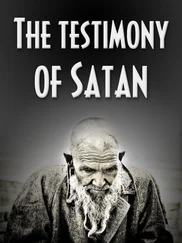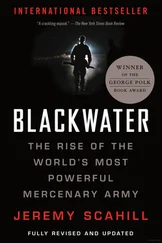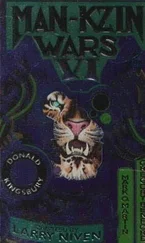Two men who prayed at Anwar’s mosque in San Diego, Khalid al Mihdhar and Nawaf al Hazmi, would soon be among the nineteen hijackers who conducted the 9/11 attacks. When Anwar moved the family to Falls Church, Virginia, in 2000, Hazmi also attended his mosque. After 9/11, US investigators would charge that Anwar was al Hazmi’s “spiritual adviser.” Nasser told me he asked his son about his connections to Hazmi and Mihdhar and told me that Anwar had only a sporadic, clerical relationship with the men. “I asked him myself. He said, ‘They prayed in the mosque like anybody else, and I met them casually,’” Nasser asserted, asking, “How in the world do you think al Qaeda would have faith in Anwar to tell him about their biggest thing they were preparing for? It is unbelievable, because at that time he had no links whatsoever with any group like that. Definitely. And I’m 100 percent sure of that.”
Listening to Anwar’s sermons from this era, there is no hint that he had any affinity for al Qaeda. In 2000, Anwar began recording CDs of his sermons and selling them as box sets. The sermons were extremely popular among Muslims in the United States and elsewhere in the English-speaking world. He recorded more than a hundred CDs in all, most of them consisting of lectures on the lives of the Prophet Muhammad, and on Jesus and Moses, as well as theories about the “Hereafter.” As the New York Times put it, “The recordings appear free of obvious radicalism.” Invitations began streaming in, inviting Awlaki to speak to mosques and Islamic centers across the United States and around the globe. “I was very pleased with him,” said Abu Muntasir, a founding member of a UK group called JIMAS, which hosted Awlaki several times. “He filled a gap for western Muslims who were seeking expressions of their religion which differed from the Islam of their parents’ generation, to which they found it difficult to relate.”
Despite the nonpolitical nature of his preaching, Anwar later alleged that US intelligence agents had sent “moles” into his San Diego mosque to gather information on its activities. “There was nothing happening at the mosque that would fall under the loose category of what we today refer to as terrorism but nevertheless, it is my firm belief that the government, for some reason, was actively trying to plant moles inside the mosque,” he charged.
There is another strange mystery regarding Anwar’s early run-ins with the FBI, one that will likely never be solved. While he was an imam in San Diego, Anwar was busted twice on charges of soliciting prostitutes. In the first case, he pleaded guilty to a lesser charge and paid a $400 fine and in the other, he was fined $240, given three years’ probation and sentenced to two weeks of community service. The arrests would later be used to paint Anwar as a hypocrite, but the preacher offered up a different explanation: the US government was trying to blackmail him into becoming an informant. In 1996, Anwar claimed, he was in his minivan at a stoplight waiting for it to turn green when his vehicle was approached by a middle-aged woman who knocked on the passenger-seat window. “By the time I rolled down the window and before even myself or the woman uttering a word I was surrounded by police officers who had me come out of my vehicle only to be handcuffed,” he recalled. “I was accused of soliciting a prostitute and then released. They made it a point to make me know in no uncertain terms that the woman was an undercover cop. I didn’t know what to make of the incident.” Then, Anwar said, a few days later he was visited by two men he said identified themselves as federal agents, who told him they wanted his “cooperation.” Anwar said they wanted him to “liaise with them concerning the Muslim community of San Diego. I was greatly irritated by such an offer and made it clear to them that they should never expect such cooperation from myself. I never heard back from them again until” a year later. That was his second bust for soliciting. “This time I was told that this is a sting operation and you would not be able to get out of it,” Anwar recalled.
Perhaps he really was soliciting prostitutes, and his self-projection as a pious man was an elaborate deception. But there would be other indications later that Anwar Awlaki may not have been regarded by US intelligence simply as a target of investigation, but also as a potential collaborator.
Anwar was unsettled by his run-ins with the law in California. “I believed that if the issue in San Diego was with local government I should be safe from it if I move somewhere else,” he recalled. Nasser arranged for him to get a partial scholarship at George Washington University in Washington, DC, to pursue a PhD. By that point, Anwar’s wife had given birth to their second child and he needed to find employment. So, he lined up work as a chaplain for the university’s interreligious council and landed a job as an imam at a popular mosque in Virginia, Dar al Hijrah. “Our community needed an imam who could speak English…someone who could convey [a modern narrative about Islam] with the full force of faith,” said Johari Abdul Malik, the outreach director at Dar al Hijrah. The mosque wanted someone who could present the messages of the Koran to an audience of American Muslims. Awlaki, Malik said, “was that person. And he delivered that message dutifully.” The family settled into suburban Virginia in January 2001. Although Anwar’s reflections years later indicate that his rage against the United States was building in the years preceding 9/11, if that was true, he did a great job of masking it with his public profile as a highly respected figure in the mainstream Muslim community.
ON THE MORNING OF SEPTEMBER 11, 2001, Anwar Awlaki was sitting in the backseat of a taxi. He had just arrived at Reagan National Airport in DC and was heading home after catching a red-eye back from a conference in Irvine, California. He heard the news of the attacks in the taxi and told the driver to head straight for his mosque. Awlaki and his colleagues were immediately concerned that the mosque could be targeted in the rage that was brewing. That night, police were called to Anwar’s mosque after a man pulled his car up in front of the building and screamed threats at those inside for thirty minutes straight. The mosque closed for three days as a result and issued a press release condemning the attacks. “Most of the questions are, ‘How should we react?’” Awlaki said to the Washington Post, explaining the leadership’s reasons for shuttering the mosque. “Our answers are, especially for our sisters who are more visible because of the dress: Stay home until things calm down.” When the mosque reopened, a Muslim-owned security firm was hired to search cars and handbags and pat down people entering the building. Local churches offered support to Dar al Hijrah, including escorts for Muslim women afraid to venture out to mosque. This was a fact that Anwar lauded publicly to his congregation and to reporters, but he also kept worshippers informed about anti-Muslim prejudice and hate crimes—such as one incident in which a Muslim woman stumbled into the mosque on September 12 after being attacked by a man with a baseball bat. In his first sermon after the reopening of the mosque, Anwar condemned the attacks as “heinous.” “Our hearts bleed for the attacks that targeted the World Trade Center as well as other institutions in the United States, despite our strong opposition to the American biased policy towards Israel,” he said, reading a condemnation of the attacks from Sheikh Yusuf al Qaradawi, the famous, controversial Egyptian theologian. “We came here to build, not to destroy….We are the bridge between America and 1 billion Muslims worldwide,” Awlaki added.
Читать дальше












